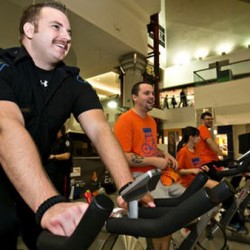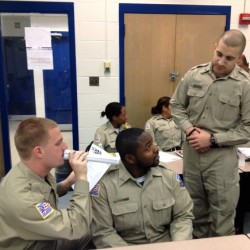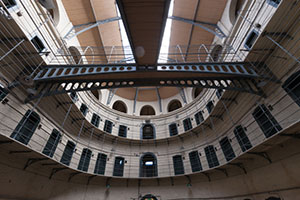
The field of Corrections offers many career paths, and employs individuals with a broad set of educational backgrounds, including those in criminal justice, education, mental health, law enforcement, administration, healthcare, maintenance, operations, and food service. In spite of downward trends in crime, and budget constraints that typically limit employment growth in this sector, job opportunities are abundant. The rising number of adults under parole or probation and the increase in the number of private companies who are contracted to offer prison services are just a few of the factors that keep job demand high. Listed below are several of the most common professions within the field of Corrections:
Career Options in the Field of Corrections
- Correctional Officer
- Police Officer
- Probation Officer
- Substance Abuse Counselor
- Registered Nurse
- Drug Enforcement Agent
- Crime Scene Investigator
- Emergency Medical Technician
- Social Worker
- Facilities Manager
- Loss Prevention Agent
- Paralegal
- Maintenance Supervisor
- Prison Chaplain
- U.S. Border Patrol Agent
- Vocational Counselor
- Prison Warden
- Criminologist
- Dental Hygenist
- Game Warden
- Public Information Officer
- Pretrial Services Officer
- Program Coordinator
- Detective
- Forensic Scientist
- Forensic Psychologist
- Group Counselor
- Juvenile Corrections Officer
- Physicians Assistant
- Case Manager
- Psychologist
- Food Service Supervisor
- Baliff
- Community Corrections
- Special Education Teacher
- Legal Secretary
Correctional Officer Jobs & Job Description
Corrections Officers work in a variety of environments throughout the nation’s prisons, jails, and detention centers. Working within the proscriptions of routine duties in accordance with carefully planned policies, regulations and procedures, correctional officers maintain order throughout a facility. While jobs do vary, corrections officers have similar sets of tasks that include:
- Provide security, care and direct supervision of inmates or residents
- Ensure that housing units, meals, recreation, work assignments and additional activities are secure environments for residents and staff
- Use weapons as required to maintain order
- Use force as required to maintain order
- Receive incoming inmates, prisoners or residents
- Searches, books, fingerprints and photographs incoming inmates, prisoners, or residents
- Searches, records and stores offenders’ personal property
- Classifies and provides accommodation for prisoners and residents
- Provides monitoring of offenders within residential areas
- Provides direct supervision of offenders during meals, health and medication check ins, and work periods
- Distributes food and goods to prisoners
- Enforces general behavior standards of prisoners
- Secure and escorts offenders within and without the facility
- Conduct random cell searches as a method of control and discipline for security purposes
- Maintain and update jail records
- Use computer systems and proprietary computer programs to check and record prison and offender data
- Escort prisoners for court
- Monitor offenders while in court
- Draft reports documenting incidents, collect items for evidence
- Liaise in a positive and professional manner with internal and external stakeholders, including supervisors; co-workers; outside law enforcement agencies; lawyers, transport personnel, county, state and federal personnel and agencies, community members
- Follow direction to respond appropriately and professionally to emergencies using appropriate force
- Operate a variety of equipment, including computers, printers, FAX and fingerprint machines, digital imaging computers, physical restraint devices, firearms, radios, fire extinguishers, intercom systems, telephones, and equipment found in the central control booth.
Senior corrections officer jobs often have a broader scope of practice which includes additional confidential information, advance protocols, and decision-making roles involving facilities, operations and personnel. Such responsibilities may include:
- Tactical response and team deployment to control offender assaults, fires, riots, offender disturbances, explosions, natural disasters, and hostage conditions
- Complete corrections paperwork including booking, medication, release records, reports; logs, requests, memos and rosters
- Facilitate clerical and reception work to best support the prison and offenders
- Release prisoners through approved procedures including bail, court order, or as otherwise ordered by appropriate authorities.
- Operate, audit, repair, requisition a variety of equipment, including computers, printers, fax and fingerprinting machines, digital imaging software, physical restraint devices, firearms, radios, fire extinguishers, intercom systems, telephones, and equipment found in the central control booth.
- Manage team morale in an appropriate, ethical and positive manner
- Manage, monitor and engage in interactions with offenders in an appropriate, ethical and positive manner
- Consider the health and safety of self, team, offenders, and community at large before engaging in any action within the prison
- Liaise with senior management officials, warden, trustees, and government officials
Correctional Officer Salary Information
2018 salary data sourced from the U.S. Bureau of Labor Statistics (http://www.bls.gov/oes/current/oes333012.htm)








